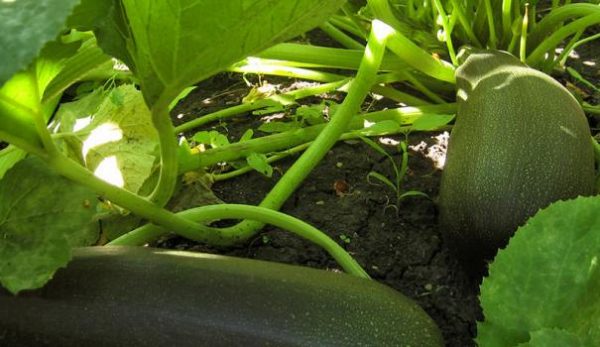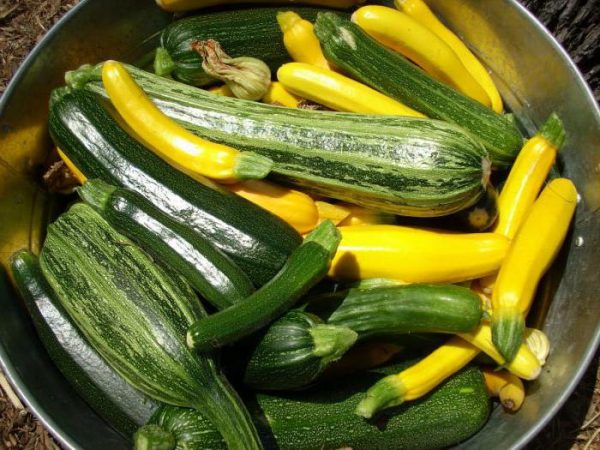Why are zucchini bitter and how to remove bitterness
Content
Causes
Zucchini comes from the pumpkin family, which are famous for the accumulation of cucurbitacins, a bitter, harmless substance. Thus, the vegetable reacts to changes for the worse in living conditions in the garden. Cucurbitacin is stored in the cotyledons of the plant, spreading bitterness to the entire pulp of the fruit. Plants of the Cucurbitaceae family contain saponins - aglycones that are bitter. True, some hybrid varieties of zucchini are practically not affected by cucurbitacin's influence on taste.
- One of the reasons why zucchini is bitter is an excess of phosphorus and potassium, both in the soil and in the plants themselves. Curiously, excess nitrogen reduces bitterness. However, the reaction to cucurbitacin differs from variety to variety, for example, “Zolotinka” is more prone to a set of bitter taste than “Gribovskiy 37”. The number of factors also includes the process of growing the fruit - in cases where they lay in the sun for a long time, the likelihood of bitterness increases. For example, first-year plants are more prone to the formation and accumulation of cucurbitacin, while plants grown from their seeds are less likely to exhibit this feature. To activate accumulation, it is necessary to place the culture in uncomfortable conditions for it: excessive watering, overfeeding with fertilizers, lack of lighting, illness. Zucchini are especially sensitive to drought, even if one considers that they are moderately moisture-loving plants. In the absence of watering for a long time, they begin to produce and store a large amount of nitrogen and nitrate compounds.

- Zucchini's taste is influenced by the length of daylight hours - the less sunlight a plant receives, the more likely it is to start producing cucurbitacin. Try to plant zucchini in well-lit areas where they will not be shaded. Also, regularly pinch and thin out the plantings to avoid creating a natural shade from the plants themselves.
- With insufficient watering, the bitter taste of the zucchini increases. However, when over-watered, they exhibit the same properties. In addition, an abundant introduction of moisture makes zucchini more vulnerable to fungal microflora and can cause disease with powdery mildew, downy mildew, root, gray or white rot. During dry periods, try to water the zucchini as often as possible, but never pour water directly onto the leaves! Watering with warm water is best done in the early morning or evening, when the heat fades away.

- Excess potash and phosphate fertilizers also play a role. Try to maintain a normal balance of these minerals, for example by balancing with nitrogen fertilizers or using organic fertilizers. Feed the plants with iodine, yeast, and boric acid to bring the plants back to their usual taste.
- Less often, zucchini are bitter due to diseases. Fusarium, anthracnose are manifested not only in pathological changes in the color and structure of zucchini leaves, but also in the taste of the fruit.Urgent treatment should be given so that vegetables can be safely eaten and plant seeds used next year. Also, do not forget about the prevention of diseases, since they are dangerous not only for vegetables, but also for the human body.
Video "Nuances of growing zucchini"
An informative video that will help you grow tasty and healthy zucchini without bitterness. Practical advice and nuances of growing.
What is bad for the body
The effect of cucurbitacins on the body is not negative.
Studies have shown that cucurbitacin helps curb the growth of malignant tumors, although it is not a complete cure for them. These saponins also have contraceptive, anti-inflammatory, antimicrobial properties. Often, cucurbitacin obtained from cucumbers and zucchini is used to combat helminths. At the same time, it is not widely used in medicine due to non-specific toxicity.
However, there are also disadvantages in the effects of cucurbitacin on the human body. It is not recommended to use it for people with diseases of the gastrointestinal tract. The substance irritates the mucous membranes, causing burning sensation and profuse redness. It is strictly contraindicated to use bitter zucchini for people with ulcers of the esophagus, stomach, intestines, so as not to provoke a relapse of the disease. With abundant consumption of bitter zucchini or cucumbers, vomiting, dizziness, nausea, and diarrhea may occur. If you are diagnosed with ulcers of the gastrointestinal tract, ulceration of the oral mucosa or chronic gastritis, you should stop eating zucchini, zucchini, cucumbers, especially if they are bitter.
Video "Proven Secrets for Growing Zucchini"
Demonstration video with time-tested recommendations for gardeners.


